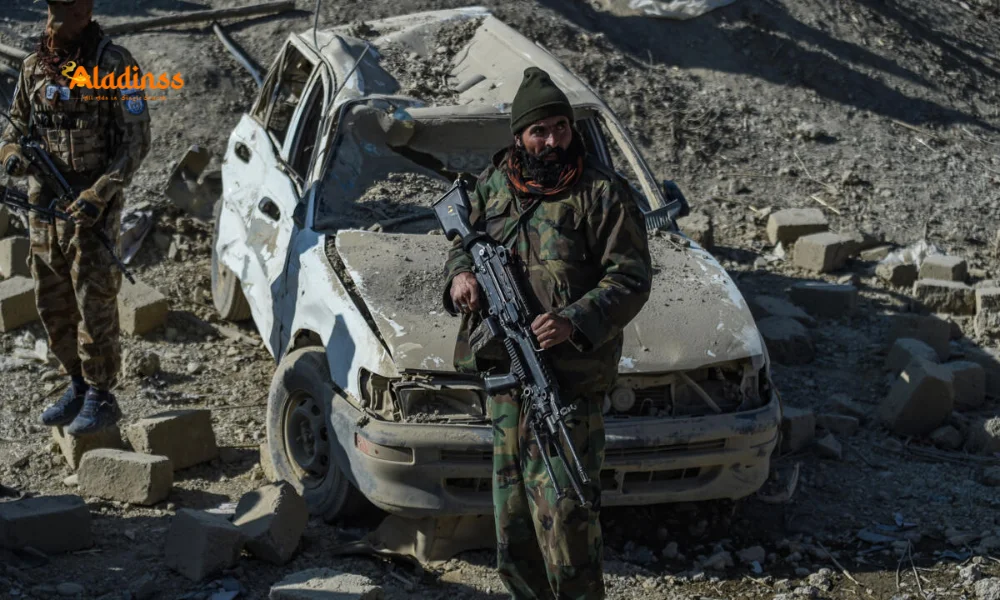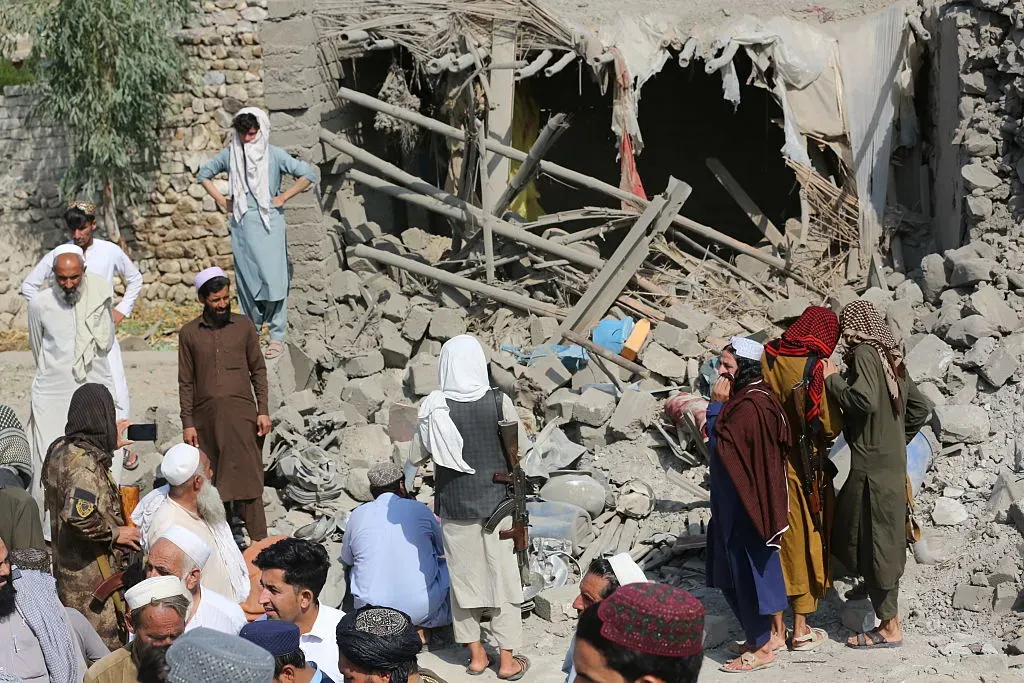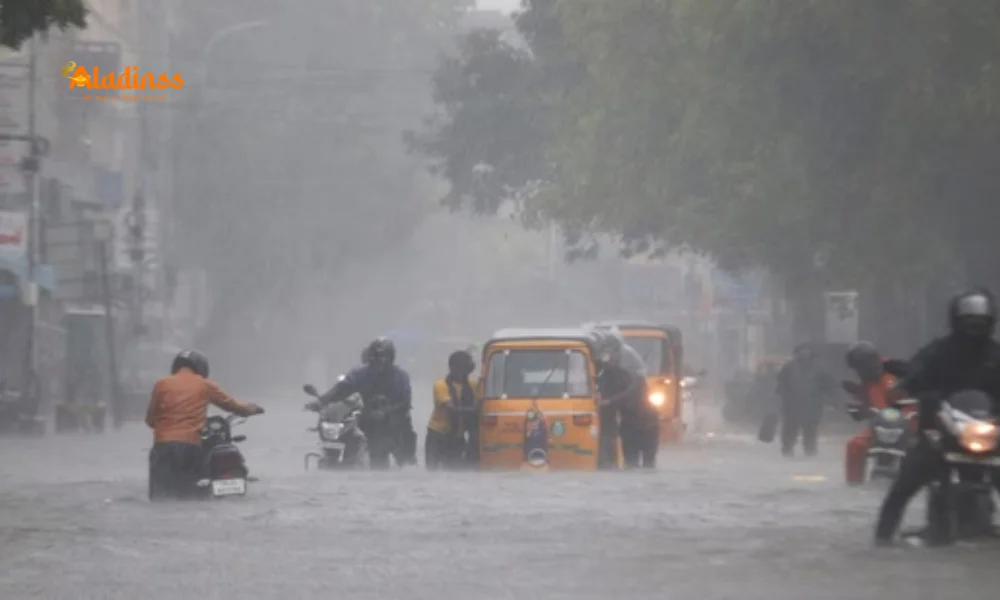Taliban Warn Pakistan of Harsh Retaliation After Deadly Air Raids

Taliban Slam Pakistan’s Airstrikes, Vow to Expose Duplicity
The Taliban have fiercely condemned Pakistan’s airstrikes in Afghanistan’s Paktika province on October 17, labeling them a blatant violation of the Doha agreement and a deliberate attempt to undermine ongoing peace talks. According to sources within the Taliban’s defense ministry in Kabul, the strikes, executed by Pakistani drones and F-16 jets in the Argun and Barmal districts, targeted civilian areas, including a cricket club, rather than Tehrik-i-Taliban Pakistan (TTP) fighters as claimed by Islamabad. The Taliban are now preparing to retaliate strategically and expose Pakistan’s actions globally.
Led by Mullah Yaqoob Mujahid, the Taliban’s defense ministry views the airstrikes as a calculated “humiliation tactic” aimed at weakening Afghanistan’s interim government. The attacks have sparked outrage, with the Taliban rejecting Pakistan’s justification that the strikes targeted TTP hideouts. Instead, Kabul insists that the bombed sites were civilian compounds, escalating tensions and threatening to derail fragile ceasefire negotiations. The Taliban’s response includes plans to highlight Pakistan’s “duplicity” before international mediators like Qatar and the Organisation of Islamic Cooperation (OIC).
Taliban’s Strategic Response to Pakistan’s Airstrikes
Under the direction of the Taliban’s supreme leader, the defense ministry is gearing up for a measured retaliation. Sources indicate that Mullah Yaqoob has ordered selective artillery fire targeting Pakistani border posts near Angoor Adda and Ghulam Khan. This response is designed to signal Afghanistan’s resolve without escalating into a full-scale conflict. The Taliban’s leadership is focused on maintaining strategic restraint while demonstrating that such violations will not go unanswered, particularly in light of the civilian casualties reported in Paktika province.

The Taliban’s defense ministry is also working to counter what it describes as Pakistan’s misinformation campaign. Kabul alleges that Pakistan’s Inter-Services Intelligence (ISI) has been planting false signals intelligence (SIGINT) to justify the airstrikes by claiming TTP presence in the targeted areas. This alleged tactic, according to Taliban insiders, aims to disrupt the ceasefire narrative and weaken Afghanistan’s position in ongoing talks. The ministry is compiling evidence to present to international mediators, with a focus on exposing Pakistan’s actions as a violation of diplomatic agreements.
Civilian Casualties and Internal Taliban Dynamics
The airstrikes in Argun and Barmal districts have caused significant civilian harm, with reports confirming that a cricket club was among the targets. This has fueled anger within Afghanistan, particularly as the Taliban assert that no TTP fighters were present at the bombed sites. The civilian toll, including the deaths of three Afghan cricketers, has amplified calls for accountability and intensified anti-Pakistan sentiment. The Afghanistan Cricket Board’s decision to withdraw from a tri-series involving Pakistan underscores the broader impact of the strikes on Afghan society.
Internally, the airstrikes have exposed divisions within the Taliban. Some factions are pushing for a temporary boycott of negotiations with Pakistan as a form of protest, while others advocate for a more restrained approach to avoid derailing diplomatic efforts. In Doha, the Taliban’s negotiating team held an emergency meeting to assess the situation, reflecting the urgency of addressing Pakistan’s actions. These internal rifts highlight the challenges the Taliban face in maintaining unity while responding to external aggression.
Pakistan’s Motives and Regional Implications
Taliban sources interpret Pakistan’s airstrikes as a sign of desperation driven by domestic instability and external pressures. They claim that Islamabad, facing political and security challenges at home, is acting under Western influence to demonstrate strength. The strikes, according to Kabul, were intended to distract from Pakistan’s internal issues while undermining Afghanistan’s interim government. This narrative aligns with the Taliban’s broader strategy to portray Pakistan as an unreliable partner in regional peace efforts.
The attacks have significant implications for Afghanistan-Pakistan relations, already strained by years of border disputes and mutual accusations of supporting militant groups. The Durand Line, the contentious border separating the two nations, remains a flashpoint, with both sides blaming each other for cross-border terrorism. Pakistan’s claim that the strikes targeted TTP hideouts reflects its ongoing struggle to contain the group, which has intensified attacks within Pakistan in recent years. However, the Taliban’s rejection of these claims suggests a deepening mistrust that could complicate future negotiations.
International Mediation and the Doha Agreement
The Taliban’s plan to expose Pakistan’s “duplicity” focuses on leveraging international mediators, particularly Qatar and the OIC. The Doha agreement, signed in 2020, was intended to facilitate peace and stability in Afghanistan, but the Taliban argue that Pakistan’s actions violate its principles. By presenting evidence of civilian casualties and false SIGINT to mediators, the Taliban aim to pressure Pakistan diplomatically and rally international support. This strategy reflects Kabul’s intent to shift the narrative and hold Pakistan accountable on a global stage.
Qatar, as a key mediator in Afghan peace talks, is likely to play a pivotal role in addressing the fallout from the airstrikes. The Taliban’s emergency meeting in Doha underscores the importance of these diplomatic channels in managing the crisis. The OIC, representing Muslim-majority nations, could also serve as a platform for the Taliban to highlight Pakistan’s actions, particularly given the civilian toll and the violation of Afghan sovereignty. These efforts aim to isolate Pakistan diplomatically while reinforcing Afghanistan’s position as a victim of unprovoked aggression.
The Road Ahead for Afghanistan-Pakistan Relations
The airstrikes have pushed Afghanistan-Pakistan relations to a new low, with the Taliban’s planned retaliation and diplomatic efforts signaling a protracted standoff. The selective artillery fire near border posts indicates a willingness to escalate militarily, albeit cautiously, to avoid a broader conflict. However, the Taliban’s focus on exposing Pakistan’s actions suggests a preference for diplomatic pressure over all-out war, given Afghanistan’s internal challenges and limited resources.
The international community, including regional powers and mediators like Qatar, will be closely monitoring the situation. The Taliban’s ability to present credible evidence of Pakistan’s violations could shift global perceptions, potentially leading to increased scrutiny of Islamabad’s actions. Meanwhile, Pakistan’s justification for the strikes, rooted in its fight against the TTP, highlights the complex security dynamics in the region, where both nations accuse each other of harboring militants.
A Call for Accountability and Peace
The Taliban’s response to the airstrikes reflects a broader call for accountability and an end to cross-border violations. The civilian casualties, including the targeting of a cricket club, have galvanized public sentiment in Afghanistan, with social media platforms like X buzzing with condemnation of Pakistan’s actions. The Taliban’s pledge to expose Pakistan’s “duplicity” underscores their intent to seek justice through diplomatic and strategic means, while also addressing internal pressures to respond decisively.
As tensions escalate, the need for de-escalation and dialogue remains critical. The airstrikes have not only violated the ceasefire but also eroded trust between Afghanistan and Pakistan, making future negotiations more challenging. The international community’s role in mediating the crisis will be crucial in preventing further escalation and fostering a path toward stability. For now, the Taliban’s focus on strategic retaliation and diplomatic exposure signals a new phase in Afghanistan-Pakistan relations, with significant implications for regional security.
Comment / Reply From
No comments yet. Be the first to comment!











